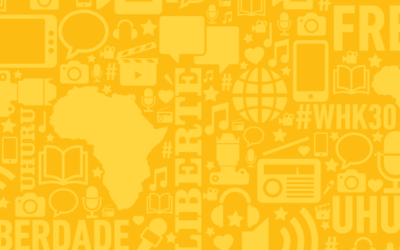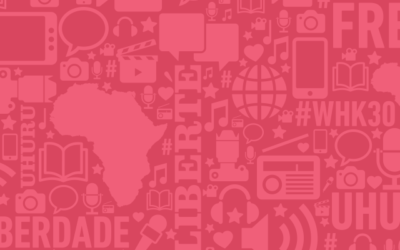by Nhlanhla Ngwenya
African media and press freedom advocates have every reason to celebrate this year, as the world returns to the continent to commemorate the adoption of a landmark covenant – the Windhoek Declaration on promoting press freedom.
The declaration, adopted by African newspaper journalists 30 years ago, on May 3 1991, at a UNESCO seminar on promoting an independent and pluralistic African press and subsequently endorsed by the UNESCO General Conference, now forms the foundation on which World Press Freedom Day is celebrated globally today. What an achievement stemming from a gathering that was just organised to discuss the various crises African media faced in the late 1980s and early 1990s!
Thirty years later, the world will again turn its attention to Windhoek on May 3 2021, to celebrate press freedom and take stock of the road travelled so far in promoting that right. Undoubtedly there have been successes since 1991, but also a lot is still to be achieved as the media landscape changes and communications ecosystems evolve, accelerated by digital technologies. Thus, a revisit and review of the Declaration to assess its relevance and responsiveness to the challenges of the day, is not only necessary but long overdue.
This is precisely because when the Declaration was adopted, those sitting around the table were largely drawn from the print media. This has been acknowledged by African media, hence the adoption of other complimentary charters such as the African Charter on Broadcasting in 2001. It is however important to have a comprehensive document that incorporates and reflects the currency of media developments.
But most importantly it is critical that such an exercise is not seen as an end in itself but an anchor for a rigorous push for meaningful protection of media freedoms, the right to free speech on and offline as well other online liberties due to global citizens. Otherwise, the revision of the declaration will suffer the fate of preceding similar exercises and become a symbolic gesture whose effect will only be a mere historic record.
For example, despite the many instruments promoting freedom of expression and the media, governments across the globe have gone on to erode the very same liberties and abdicate their obligations under their own constitutions and international conventions with impunity. Southern Africa typifies this brazen disregard for duty to protect citizens.
Windhoek Declaration: Neglected in its place of birth
According to Reporters Without Borders 2021 World Press Freedom Index, only three (3) Southern African countries are in the top 50 of countries considered to have a free press, with Namibia ranked 24, South Africa 3 and Botswana 3. This has been a trend, in a region famed for birthing the Windhoek Declaration.
This poor ranking is a reflection of the reality on the ground. As often said, figures only tell half the story. In the recent past, Southern Africa has witnessed an alarming erosion of media freedom accentuated by the COVID-19 pandemic.
The repeated arrest and pre-trial detention of independent journalist Hopewell Chin’ono by Zimbabwean authorities illustrates the deteriorating conditions for journalists in the region, especially those seeking to spotlight authoritarian and corrupt rule taking root in several countries in Southern Africa. In Tanzania journalists were routinely arrested and media banned under the government of the late President John Magufuli.
Similar cases of assault on independent journalism have been recorded in Zambia and Swaziland.
But nothing frighteningly captures the dangers journalists have to contend with just to do their job, as in Mozambique. The country has recorded abductions, beatings and enforced disappearances of journalists as well as bombing of independent media, all in a bid to stop the free flow of information on authorities’ uncomplimentary governance record. For instance, journalist Ibrahimo Abu Mbaruco remains unaccounted for, almost a year after he disappeared on April 7, 2020 in the volatile region of Cabo-Delgado. He was last seen detained by suspected security details.
While in many of the instances media freedom advocates and journalists’ bodies have loudly called out authorities, reminding them of their human rights obligations, there is no significant change in attitude. Instead, the situation appears to be worsening with the elite capture of private media predicated on both political and socio-economic crises engulfing the region as well as moves to control, throttle or shut down the digital spaces.
All the while, responsible state oversight bodies have remained largely mute and indecisive despite the fact that some are custodians of human rights instruments against which they can hold to account those implicated in the violation of press freedom.
A call to action
It is against this backdrop that the world needs to seriously deliberate on what needs to be done to ensure that principles and values espoused in such documents as the Windhoek Declaration are a living reality. The 30th anniversary of the Declaration provides an opportunity for robust conversations and practical action plans on how best to increase the cost of tyrannical media policies and practices for positive change.
Failure to do so, the aspirations of the planned 30th anniversary as espoused in the theme “Information as a Public Good” will be partially achieved. It is thus instructive that there be space reserved for practically safeguarding journalism safety under the three key topics for the 2021 event:
- Steps to ensure the economic viability of news media;
- Mechanisms for ensuring transparency of Internet companies;
- Enhanced Media and Information Literacy (MIL) capacities that enable people to recognize and value, as well as defend and demand journalism, as a vital part of information as a public good.
Otherwise, the event will pass for yet another symbolic recognition of the place of birth of the Windhoek Declaration without effective antidote for increasing media repression plaguing the region.
Nhlanhla Ngwenya is a media and freedom of expression advocate.




